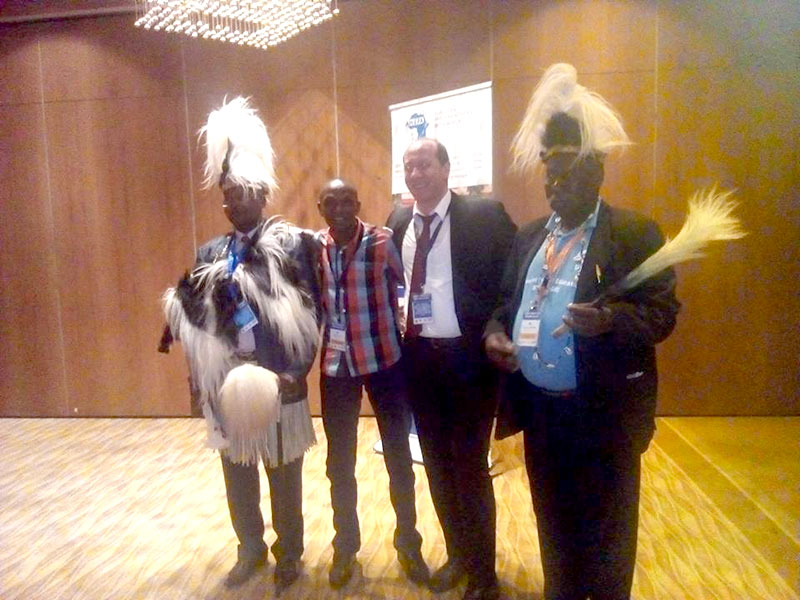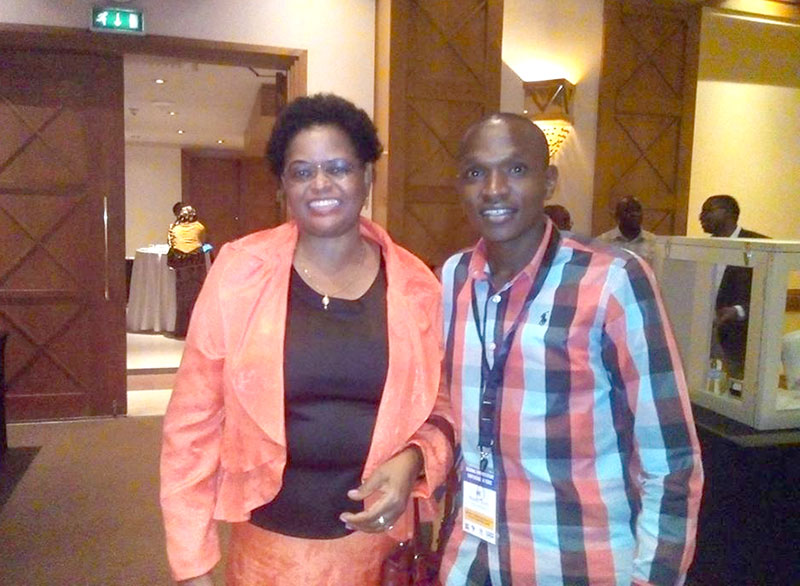Kenya recently played host to a regional parliamentary conference on female genital mutilation or cutting (FGM/C), under the theme ‘’Value of learning together – Youth, Elders, Government, Women and Legislators as custodians of positive culture for girls and women’’.

The participants were drawn from members of the four regional parliaments that have committed to the Obligation to Protect (O2P) framework – a programme financed by the government of the Netherlands to support a range of efforts aimed at rooting out FGM/C in Ethiopia, Egypt, Sudan and Kenya.
They also included members of the Kenyan Parliamentary Caucus on FGM/C. Members of the Parliaments of Somalia, Djibouti and Senegal, the chair and members of the Kenya Anti-FGM Board, representatives of different government ministries, European members of Parliament, local representatives, including government officials, reformed FGM practitioners, religious leaders, health officials, anti-FGM/C campaigners and community elders of several Kenyan counties, representatives from Plan International’s Ethiopia, Sudan, Egypt and Kenya offices, representatives from the Association of European Parliamentarians with Africa (AWEPA) and other experts.
Kenya MenEngage Alliance was represented by the National Co-ordinator Job Akuno and the Programme Officer Elias Muindi.
Speaking at the conference, Akuno said “male engagement is important since men and boys are the consumers of FGM/C. In that sense, they are best placed to highlight the dangers of FGM/C to their peers and to act as partners and agents of change in eradicating it’’.

Held in Nairobi, Kenya over two days – 21st February and 22nd February – the conference’s objectives were to:
- Brief the MPs of the four O2P (Obligation to Protect) countries and additional countries about the situation of FGM/C and the existing legal and policy frameworks in these countries;
- To share the experience, expertise and best practices with regard to the parliamentary activities taken so far to abandon FGM/C in their countries; and
- To discuss regional co-operation towards the implementation of existing laws and policies.
The conference outcomes were:
- MPs were sensitised about the prevalence and practice of FGM/C in their countries;
- MPs became aware of best practices in other countries and have committed to share this information with their Parliaments back in their countries;
- A commitment to share experiences and expertise among African MPs in the region, MPs and local representatives in Kenya, and between African and European MPs. This will increase mutual understanding and political will for co-operation towards eliminating FGM/C; and
- The drafting of a regional parliamentary action plan on FGM/C.
Some of the resolutions of the conference by parliamentarians were:
- To raise awareness among other parliamentary colleagues about the harmful effects of FGM/C, the weak implementation of the FGM/C law, where it exists, and their obligation to act to reverse the trend;
- To present in their respective parliaments concrete action plans in accordance with four goals – to have practical tools to prevent all forms of FGM/C, to establish and offer legal means to protect and safeguard victims and potential of FGM/C, to seek commitment from all stakeholders to end FGM/C, for instance, introducing anti-FGM/C curriculum at primary level in schools, and to seek and lobby government and relevant authorities to enforce the law through education and civic education;
- To actively involve parliamentarians in communication/sensitisation activities in communities in their different countries for the abandonment of FGM/C;
- To review, amend and enact the national and regional legislative frameworks to ensure better protection of the rights of women and girls, including those relating to their reproductive and sexual health, in each country and in the region;
- To give oversight to state policies on FGM/C by asking pertinent questions to the relevant ministers on the enactment of legislation on the fight against FGM/C; and
- To ensure adequate resource allocation to policy interventions and institutions mandated to oversee the abandonment of FGM/C.
The members of parliament who attended the conference promised to develop a National Action Plan on FGM/C in each of their parliaments, where it is not in place, and to create national structures in the form of taskforces or working groups with parliamentary representation. These groups will be responsible for implementing the action plans at the national level and developing linkages with other parliaments at the regional level in order to be able to share best practices and lessons learned with one another.
The key output of the conference was a signed declaration of commitment document by parliamentarians to end FGM/C.

